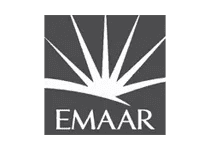Bookkeeping is a part of every running business. It helps the companies track their expenses to ensure effective financial management. The step-by-step implementation of the accounting cycle not only enhances the clarity of financial information but also offers valuable insights to stakeholders and potential investors.
Additionally, it provides precise quantitative data on monetary assets for state institutions during audits. For this purpose, business owners in Dubai and across the UAE usually have to engage with reputable accounting companies that provide timely, accurate, and expert accounting and bookkeeping services to ensure compliance with universal accounting standards and regulations for higher transparency and accuracy of financial records.
Why Need Accounting and Bookkeeping Services in UAE?
In the UAE, nearly all regulatory bodies require financial statements whenever companies seek to renew their licenses. To comply with these requirements, businesses conduct account audits that produce performance reports, ensuring they meet the necessary standards for license renewal. When also applying for a loan for your company, banks require a copy of your financial accounts.
Suppliers in the UAE also typically request financial account statements to assist you with obtaining credit facilities. Businesses generally adhere to accounting standards quite stringently. This article aims to provide you with an understanding of the various international standards available, as well as the recommended practices for managing business accounts to ensure compliance with regulations in the UAE.
What are the Accounting Standards, Definition & Types?
Accounting standards are the principles set for financial reporting. The rules are basically specified to record how the transactions are to be made. It provides some leverage and some financial information to the creditors, lenders, and investors.
Basic accounting services is very much required for the businesses operating in Dubai or anywhere in the world. The accountant needs to constantly update the financial records; otherwise, there will be too many accounts to deal with. The companies have to install the accounting software to process all the financial transactions happening from and to the company. They have to also take care of the receipts, disbursements, reimbursements, and all the receivables regularly too keep the company financially healthy.
Many people in the UAE are reportedly confused about the recent modifications in the design and format of financial record management. To address this, it is important to understand the accounting standards recommended for bookkeeping and the creation of financial statements. Companies often adopt various formats and rules to manage their accounting records, with Generally Accepted Accounting Principles (GAAP) and International Financial Reporting Standards (IFRS) being two of the most frequently utilized principles in bookkeeping. By familiarizing themselves with these standards, businesses can enhance their financial reporting and ensure consistency in their accounting practices.
International Financial Reporting Standards (IFRS)
International Accounting Standards Board (IASB) has issued IFRS as the international accounting standard for accomplishing the tasks and activities of financial management. It deals with particular types of events and transactions for financial reporting. The IFRS explains a comprehensive way of working for the accountants to maintain their records. The set of principles are designed to ensure a common language that is well understood by the business people and accounting companies in Dubai and across the world.
Accepted Accounting Principles (GAAP)
- GAAP is comprised of all essential principles and rules to deal with the intricacy, complexities, and accounting legalities for managing corporate accounting. GAAP is the foundation of accounting methods as approved and used by the Financial Accounting Standards Board (FASB). The deployment of GAAP are required in extensive accounting services because it is used to manage balance sheets, revenue recognition, and outstanding classification of items and shared estimations for public disclosure.
IFRS are the Mandatory Accounting Standards in UAE
The Securities and Commodities Authority (SCA) has made it mandatory for the businesses to comply with IFRS as stipulated by the Central bank of the UAE. Therefore, all the companies listed in the NASDAQ Dubai (Formerly known as DIFX), Dubai Financial Market (DFM), or Abu Dhabi Securities Exchange (ADX) is required to manage their accounting records in accordance with International Financial Reporting Standards (IFRS). In line with this, all the companies listed legally on the Abu Dhabi Securities exchange from 2003 onwards are supposed to submit the IFRS financial statements. Although it is not binding on the businesses that are not listed in the mentioned exchanges, it is suggested to implement IFRS as soon as possible to avoid complications and ensure transparency.
In the past, there was no pre-defined standard for the businesses in the UAE. However, the state has recently encouraged business owners to adopt International Financial Reporting Standards (IFRS) for their accounting practices. This recommendation aims to help business leaders navigate the complexities of financial regulations and ensure compliance, as many have found it challenging before to determine the appropriate standards for their financial reporting.
Accounting is essential for every organization located anywhere in the world, including the UAE. It is a process where you record, measure, classify and verify financial information. Also, accounting helps you know where you have used your company funds as well as help you know the value and nature of your company's liabilities. All the functional companies in UAE are supposed to adopt the IFRS method.
In order to initiate the accounting, accountants in UAE will need the below mentioned documents:
1. Legal Documents of the Company:
- Certificate of Incorporation,
- Memorandum and Article of Association,
- Share Certificate,
- Trade License.
2 Invoices of expense for Company incorporation
- Office Rental Contract and Invoice
- Deposit slips if any paid to DEWA, Rent and etc.
- Sales Invoices
- Purchase invoices
- Bank statements
- Credit card statements if any
- Petty Cash sheet if maintained
- Invoices for expenses like Telephone and Utilities, Office expenses and any other expense related to the company
- Invoice for purchase of any company asset.













